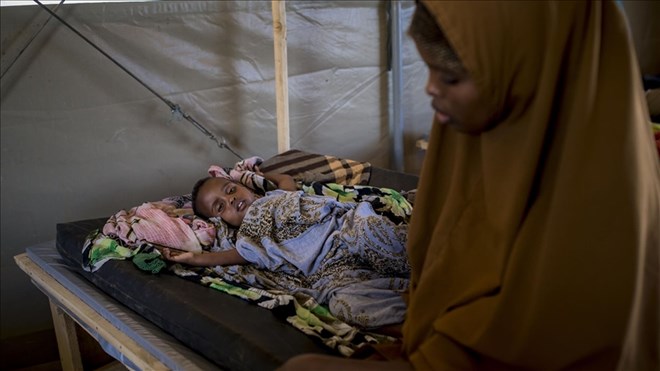
Peter Kenny
Saturday December 17, 2022

GENEVA - Climate change has driven an “unprecedented” number of larger and more deadly cholera outbreaks reported in around 30 countries this year, the World Health Organization said on Friday.
The WHO said at a UN press conference that it is following cholera outbreaks in 30 countries in Africa and also an upsurge in Haiti.
Researchers have estimated that each year there are 1.3 to 4 million cases of cholera and 21,000 to 143,000 deaths worldwide due to cholera, according to the WHO.
“The situation is quite unprecedented, for not only are we seeing more outbreaks, but these outbreaks are larger and more deadly than the ones we have seen in the past years,” Philippe Barboza, who heads the WHO’s cholera and epidemic diarrheal diseases team, told journalists.
“And this increasing number of cholera outbreaks is occurring after several years of regular reduction in the number of cases and deaths,” he added.
Doctors Without Borders said this year there were cholera outbreaks in refugee camps in Lebanon, Somalia and Nigeria.
Very visible impact of climate change
Cholera is caused by bacteria that infect the intestines after people have consumed contaminated water or food.
The symptoms are often diarrhea and vomiting, and the disease particularly threatens young children.
“What is again very new since the beginning of the year and the end of last year is a very visible impact of climate change,” said Barboza.
“Most of these larger outbreaks and the fact that they are simultaneously occurring – which makes the situation much more complex – is a direct impact of the increase in adverse climate troubles.”
For example, Barboza said, significant floods, unprecedented monsoons, and a succession of cyclones are still fueled by climate change in the Horn of Africa, the Sahel, and other parts of the world.
“And unfortunately, things are not going to change quickly,” he said.
The WHO official said cholera is clearly a poverty and vulnerability disease.
“It’s the most fragile part of the population in any given country which is most at risk and for a straightforward reason: it’s just because they don’t have access to safe water and basic sanitation.”
Cholera treatments include oral rehydration for most patients and intravenous rehydration for more severe cases.